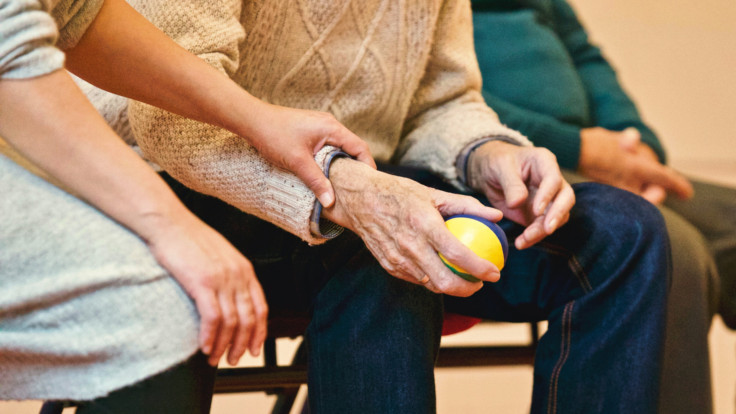
"Our America: Unforgettable," series from the ABC Owned Television Stations featuring Hispanic and Latino families whose lives have been changed due to the Alzhemier's disease is premiering this weekend.
The special comes as more than 6.7 million Americans have been diagnosed with Alzheimer's disease and it's pointed out that Hispanics are 1.5 times more likely than White people to develop Alzheimer's and other types of dementia, according to the Alzhemier's Association. Alzheimer's is a type of brain disease, caused by damage to nerve cells (neurons) in the brain which causes problems with memory, thinking and behavior. Alzheimer's is the most common cause of dementia.
According to Alzheimer's & Dementia: The Journal of Alzheimer's Association, Latinos in the U.S. living with Alzheimer's and other dementias would increase by more than three times within the next 40 years, the largest increase among racial and ethnic groups. By 2060, there could be 3.2 million Hispanic Americans living with the disease.
A sneak peak of the documentary from ABC News reveals the two families it will follow: The Miranda family, formed by Evelin Miranda from Puerto Rico and her husband, Eddie Miranda from Dominican Republic, as well as their three children. Her husband was diagnosed with Alzheimers in 2019. The other family featured is from California: Aurora Ramirez, a Mexican-American only child, who became her mother's caretaker after receiving the diagnosis in 2016.
The special includes leading experts and scientists across the country specializing in or researching Alzheimer's disease. Some early signs of Alzheimer's disease include memory loss with familiar tasks, confusion around dates or times, wandering and getting lost among others.
While there is no cure for Alzheimer, there's been tangible progress in the hopes of treating the disease: in July, the FDA converted Leqembi (lecanemab-irmb), indicated to treat adult patients with Alzheimer's Disease, to traditional approval following a determination that a confirmatory trial verified clinical benefit. According to the FDA, Leqembi is the first amyloid beta-directed antibody to be converted from an accelerated approval to a traditional approval for the treatment of Alzheimer's disease. The drug works by reducing amyloid plaques that form in the brain, a defining pathophysiological feature of the disease.
But for now lack of healthcare access can continue to put more Latinos at risk. Risk factors also include Low socioeconomic status, cardiovascular disease, high blood pressure, obesity, depression, diabetes, according to a reference guide by WedMD.
Latinos are on track to see an increase in dementia diagnosis compared to other racial or ethnic groups, yet they make up less than 5% of participants in clinical trials. The Alzheimer's Association special report on Racial, Ethnicity and Alzheimer's in America, found that 85% of individuals were most willing to volunteer for a clinical trial if they are invited to participate. The report also found that African Americans, Latinos and American Indians are significantly more likely to volunteer if asked by a person of the same race.
"The only way that we're really going to understand how or why it manifests differently among diverse communities is by having these diverse communities Latinos Hispanics participating in the research and clinical trials," said Carmen Carrión, a neuropsychologist at Yale Medicine to ABC News. "But we have to do a better job of getting that message out there."
The special will premiere on Oct. 7 and will stream across ABC Owned Television Stations' platforms as well as on Hulu.
© 2025 Latin Times. All rights reserved. Do not reproduce without permission.





